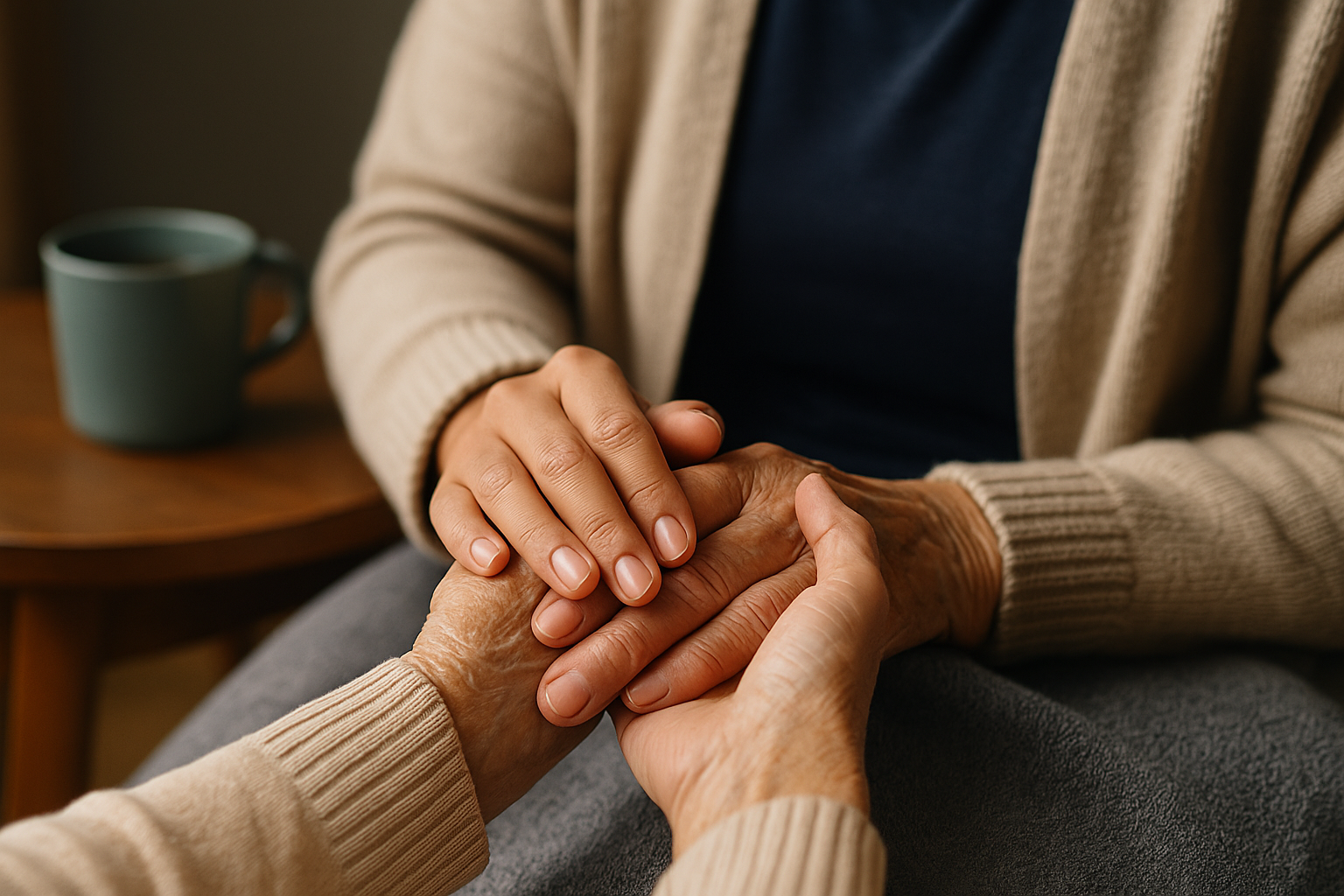1) Who counts as a carer?
You are a carer if you provide unpaid help to someone who couldn’t manage without it. That might be support with medicines, personal care, mobility, meals, travel, appointments, or keeping the home running.

Caring is meaningful and demanding. You deserve practical help, rest, and clear information.
This page gathers simple tools and UK links for unpaid carers — whether you support a partner, child, parent, friend or neighbour. Use the mini-nav to jump to what you need.
You are a carer if you provide unpaid help to someone who couldn’t manage without it. That might be support with medicines, personal care, mobility, meals, travel, appointments, or keeping the home running.
Inhale gently through the nose for 4, exhale for 6–8. Keep shoulders heavy, jaw relaxed. Repeat 10–12 cycles.

A one-page plan helps others help you quickly.
Short breaks matter. Options vary by area but may include:
This page provides general information and links. It’s not a substitute for professional medical, legal or financial advice. For personalised guidance, contact your local carer service or an advice organisation above.